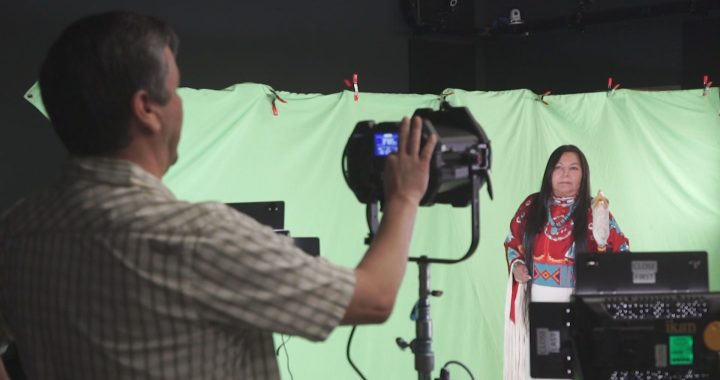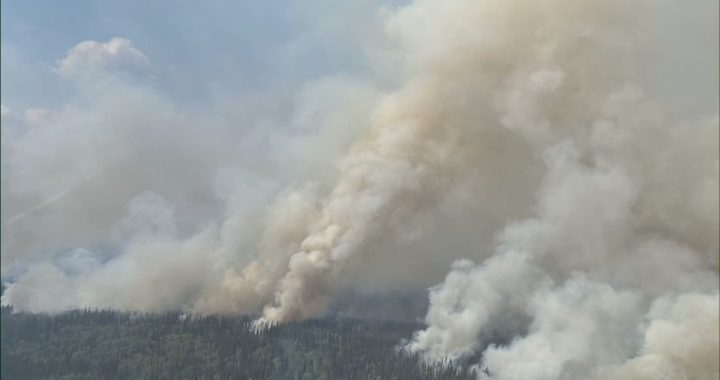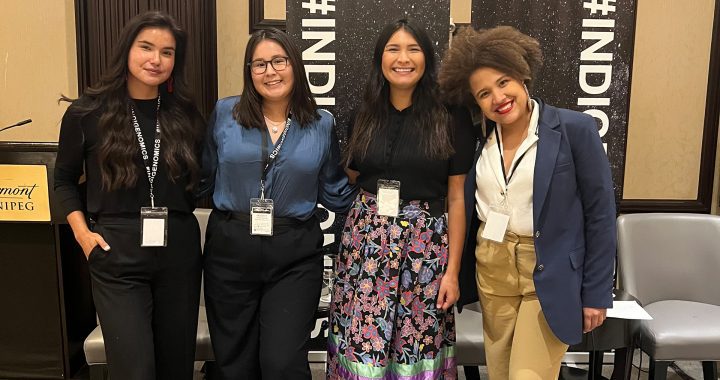Many people say they’re feeling stressed or anxious during the COVID-19 pandemic but deeper than that, experts say some might be grieving.
Grieving the loss of life as we knew it, security, jobs, close connections to friends and loved ones – lives changed in a blink with no certain outcome in sight.
A group of mental health experts formed the National Grief Alliance to encourage Ottawa to address the widespread grieving issue.
One that they say, is just starting.
“Grief is complicated,” said Paul Adams, spokesman for the National Grief Alliance. “If it’s not allowed to unfold in a normal way, then it can turn to things like anxiety, depression, PTSD, thoughts of suicide, mental health issues.”
He said existing frameworks and structures for grieving aren’t equipped to deal with the number of people currently suffering from grief and needing mental health care.
They’ve called on the government to develop a nation al grief strategy and $100 million to expand existing community services for the next three years, including for health-care workers suffering from grief on the frontline.
They also asked for a public awareness campaign on how to identify and cope with grief including $10 million to be invested in research with the goal of having a long-term plan to deal with grief associated with this pandemic.
“Many of the people losing loved ones right now during this pandemic are also losing a job, are also maybe suffering from inter-generational trauma,” he said. “These profound moments of grief are coming into people’s lives at a time, because of the pandemic or because of other things in their lives, they’re already vulnerable.”
Dr. Carrie Bourassa is a professor in the Department of Community Health & Epidemiology at the University of Saskatchewan in Saskatoon and the scientific director of the Canadian Institute of Health Research for Indigenous Peoples’ Health.
She fears because of isolation and distancing during a pandemic, people aren’t getting the support they need when grieving – whether it be loss of a loved one, or a graduation or a job, or just general grief and a sense of loss of life as we knew it.
“I think there is a real stigma unfortunately, still in this country,” Bourassa said. “I think one of the problems is that grief is not seen as a mental health issue. There are no services that are covered in terms of grief, so people are really sort of left on their own.
“And when you don’t have the ability, at least for Indigenous people and I’m sure for others, to rely on the people or processes that they normally would rely on to get through.”
The National Grief Alliance has set up websites to connect people with grief resources mygrief.ca and kidsgrief.ca
The Native Women’s Association of Canada has set up a network of elders to help those struggling during this pandemic has elders from your nation and their toll-free numbers.
Letters from Inuit Tuberculosis patients on APTN Investigates
Canada apologized last year for its treatment of Inuit people during the tuberculosis (TB) epidemic of the 1940s, ‘50s and ‘60s that sent thousands of Inuit to southern hospitals where they were mistreated and sometimes vanished.
But that apology didn’t touch on stealing patient letters to home, which were translated by government so they could see what was being said.
Something only just discovered by APTN Investigates.
Through Canada’s Access to Information Act, APTN filed a request with the Library and Archives of Canada seeking “Inuit letters.” APTN received more than 5,000 pages.
“They were written in the original Inuktitiut… all describing conditions that we’ve heard anecdotally but haven’t heard first hand at the time that they’re happening,” said APTN Investigates Producer Holly Moore said.
It took Moore and Investigates colleague Brittany Guyot years to sort through the letters and determining there were 800 patients who had written home, though their correspondence was intercepted and never received.
The contents were heartbreaking – from being forced to carve objects the government would sell, to miserable conditions in these hospitals to missing home and loved ones.
Back then, Inuit children sent south for medical care sometimes would never come home.
Often parents weren’t given a reason.
Sometimes they were told they died but were never given the remains or a death certificate.
Read More:
Atikamekw families in Quebec still haunted by dozens of stories of ‘ghost babies’
“It was pretty shocking to see what they were writing about,” Guyot said “ So many of them were expressing missing home, missing the people, missing their loved ones.”
“We both had a lot of feelings that these letters need to be repatriated, so how are we going to find these families,” Moore said, of the task that took them three years. “We started the long and very methodical task of trying to find family members who number one, wanted to see the letters and number two, were willing to talk to us about it.”
They also located a woman who was tapped by Canada to move to Ottawa to translate these letters so the government would know what these patients were saying, before filing the letters in storage until they were discovered decades later by Moore and Guyot’s access to information request.
If your loved one was in one of these hospitals and want to know if their letters are among those discovered by APTN Investigates constact [email protected] or [email protected].
They can also help if you feel your loved ones carvings were exploited.
Contact Beverly Lennie at 867-777-7066 or send an email to [email protected] to assist in finding loved ones who did not return from tuberculosis sanatoriums in the south.
Watch Part 1 of APTN Investigates series into TB letters here:
‘It was censorship’: Letters from Inuit TB patients reveal loneliness and government surveillance
Carving Home will be on that same website after it airs on APTN right after the evening news Friday May 22.











